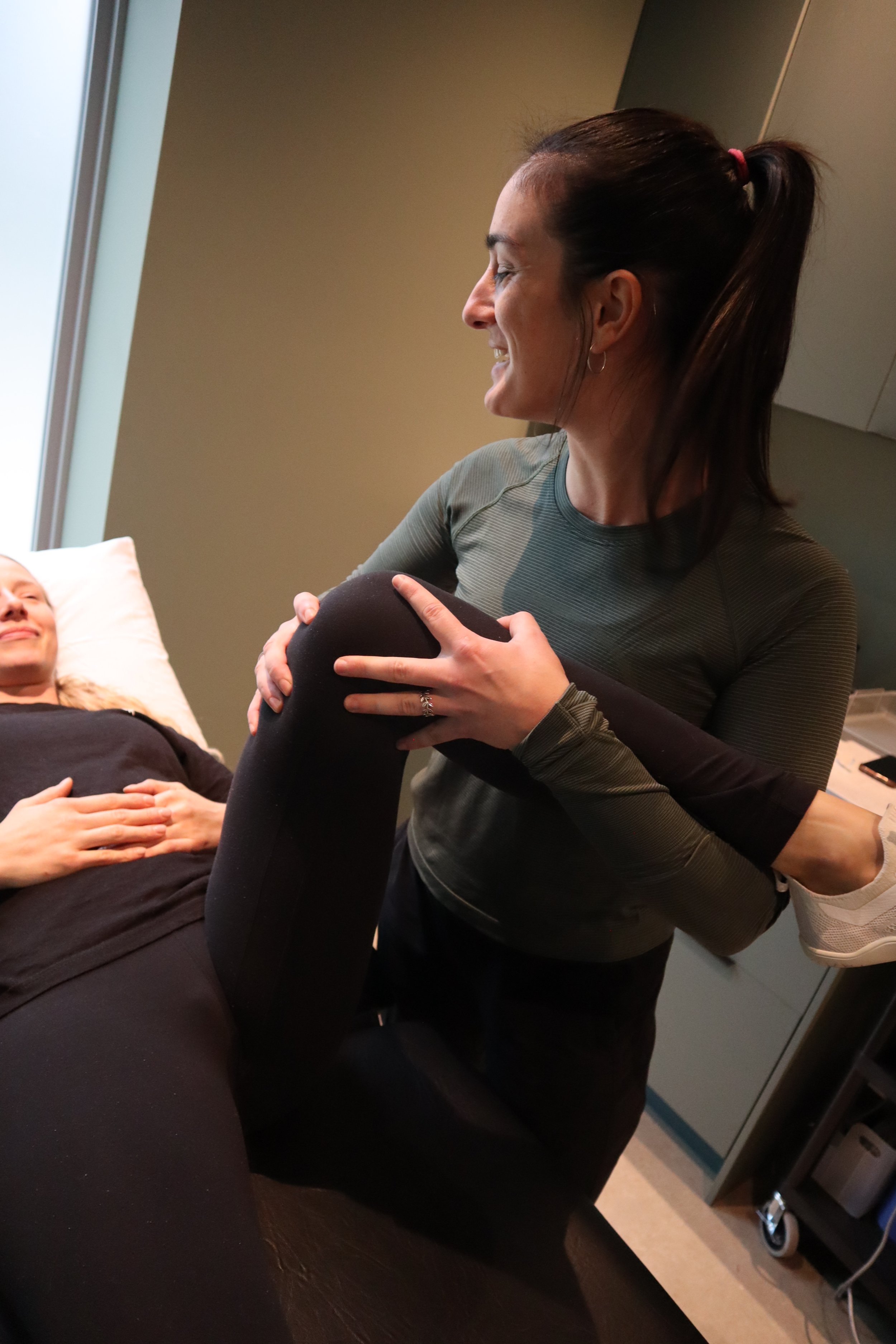Understanding Concussion Baseline Testing: Why It’s Essential for Athletes
written by: Charlotte Lalonde, Physiotherapist with Cedar Rock Wellness
Concussions are a common concern in contact sports and activities where head injuries are more likely. Whether it's mountain bike, hockey, soccer, or skiing, athletes in these sports face an increased risk of concussions. Proper management is key to ensuring a full recovery and minimizing potential long-term effects. This is where concussion baseline testing comes in. It provides valuable information to help healthcare professionals make informed and objective decisions about an athlete's recovery and readiness to return to play(1)(2).
In this blog post, we’ll explore what concussion baseline testing is, how it works, and why it’s important for athletes at all levels.
What is Concussion Baseline Testing?
Concussion baseline testing is a set of pre-season assessments that measure an athlete’s cognitive function, balance, and physical state before any head trauma occurs. This “baseline” helps healthcare professionals make objective decisions about an athlete’s recovery and readiness to return to play.
Symptoms alone, such as headaches or dizziness, aren’t always reliable indicators of recovery, as some athletes may feel fine before they’re fully healed (3). Baseline testing provides an objective measure of the athlete’s normal brain function, helping to ensure decisions about return-to-play are based on data, not just symptoms, reducing the risk of going back to sport prematurely.
The baseline can include:
● Standard assessment of concussion (SCAT6): This test is the most commonly used baseline test. He consists of an evaluation of symptoms score, a full concussion history, a verbal auditory neurocognitive test, coordination, balance and double task test. (4)
● King Devick test: This test assesses the visual tracking and processing speed.(5)
● Neuropsychological Testing: Computerized tests like ImPACT (Immediate Post-Concussion Assessment and Cognitive Testing) or DANA (digital automated neurobehavioral assessment) are commonly used to assess cognitive performance and reaction times. (6)
These assessments can be done through a combination of computerized testing, questionnaires, and physical assessments. A baseline test is usually administered by a healthcare professional or trained specialist before the athlete begins the season or starts their training. These assessments should be done every year for adults and every start of season for child and adolescent should ideally do them prior to the start of every athletic season
Conclusion
Concussion baseline testing is a vital tool in promoting safe sports practices and protecting athletes' long-term health. By providing a clear, objective measure of an athlete’s brain function before an injury occurs, it helps medical professionals make informed decisions about when it’s safe to resume sports after a concussion. It also plays a role in enhancing community concussion awareness, attitudes and player safety (7). If you’re an athlete, coach, or parent, consider implementing baseline testing as part of a proactive approach to concussion management. It’s a small investment that can make a significant difference in keeping athletes safe and healthy for years to come.
(1) Neal McGrath, Janelle Eloi,The Role of Neuropsychology in the Evaluation of Concussion,Seminars in Pediatric Neurology,Volume 30,2019,Pages 83-95,ISSN 1071-9091,
(2) Henry LC, Elbin RJ, Collins MW, Marchetti G, Kontos AP. Examining Recovery Trajectories After Sport-Related Concussion With a Multimodal Clinical Assessment Approach. Neurosurgery. 2016 Feb;78(2):232-41. doi: 10.1227/NEU.0000000000001041. PMID: 26445375; PMCID: PMC4833014.
(3) Wellm D, Zentgraf K. Diagnostic tools for return-to-play decisions in sports-related concussion. Journal of Concussion. 2023;7. doi:10.1177/20597002231183234
(4) Sport Concussion Assessment Tool 6 (SCAT6)British Journal of Sports Medicine 2023;57:622-631
(5) Dhawan PS, Leong D, Tapsell L, Starling AJ, Galetta SL, Balcer LJ, Overall TL, Adler JS, Halker-Singh RB, Vargas BB, Dodick D. King-Devick Test identifies real-time concussion and asymptomatic concussion in youth athletes. Neurol Clin Pract. 2017 Dec;7(6):464-473. doi: 10.1212/CPJ.0000000000000381. PMID: 29431168; PMCID: PMC5800721.
(6) Pryweller JR, Baughman BC, Frasier SD, O'Conor EC, Pandhi A, Wang J, Morrison AA, Tsao JW. Performance on the DANA Brief Cognitive Test Correlates With MACE Cognitive Score and May Be a New Tool to Diagnose Concussion. Front Neurol. 2020 Sep 2;11:839. doi: 10.3389/fneur.2020.00839. PMID: 32982908; PMCID: PMC7492197.
(7) Salmon D, Badenhorst M, Clark B, Walters S, Sullivan SJ, Sole G. Unintended consequences - A qualitative exploration of baseline testing in community rugby concussion management. J Sci Med Sport. 2024 Sep;27(9):594-602. doi: 10.1016/j.jsams.2024.05.003. Epub 2024 May 16. PMID: 38811276.


